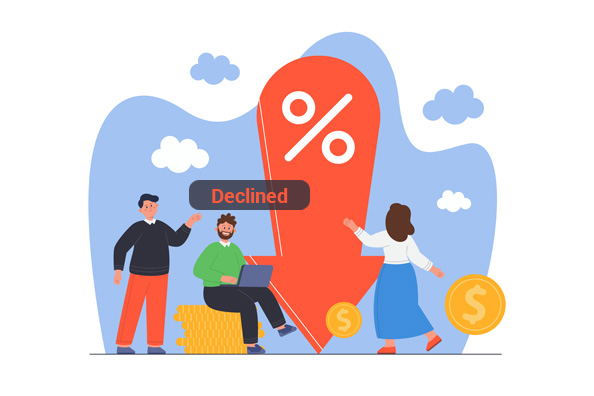
“Key tips to save money, lower interest rates, and improve cash flow”
Refinancing the investment mortgage on a rental property is indeed a good choice wherein an investor benefits from the lower Interest rates, lower monthly instalments, or partially depleted equity for other uses. Understanding the process and planning will allow you to find opportunities for refinancing for profitability of the property, and to obtain benefits for further financial planning. However, this mortgage differs from others as the requirements for refinancing investment properties are more difficult and the rates for such properties are higher
Steps to Refinance a Mortgage on a Rental Property
Here’s a step-by-step guide to refinancing successfully:
1. Evaluate Your Goals
Reviewing the financial objectives you have is critical to selecting a loan that matches an investment plan. Determine why you wish to refinance, that is, to get a better interest rate, a shorter loan period, a cure for financial mess through equity, or low monthly instalments.
2. Check Your Credit and Finances
Check your credit score as lenders typically prefer scores of 620 or higher for investment properties. Your DTI (debt-to-income) ratio has to be within acceptable limits normally less than 45%. Ensure enough cash reserves for at least 6–12 months of mortgage payments.
3. Research Loan Options
There is always a need to compare the various lenders to identify the right lender to settle for. At times, a specialised lender or a specific type can provide better rates for buyers who are interested in investing in properties. Learn the difference between a fixed-rate mortgage and an adjustable-rate mortgage and then choose the best one.
4. Get an Appraisal
Lenders need an appraisal to establish the current market value of the property in question. Good condition is the only requirement that enables the owner to receive a higher appraisal.
5. Calculate Closing Costs
Closing costs also will depend upon the amount of the loan, a minimum of 2%–6%. These costs include appraisal, title fees, and lender fees. Consider whether the savings from refinancing outweigh these costs.
6. Submit Your Application
Gather required documents such as identification proof, proof of income, tax returns, property rental history and recent bank statements. Approach your preferred lender and submit all required information concerning the property.
7. Review the Loan Offer
Looking at the loan factors such as the interest rates, monthly payments, and charges of early pay off. Make sure that the new loan will achieve the goals of the refinancing.
8. Close on the New Loan
Complete the application form and cooperate with financial production if there are any necessary payments. A new lender will usually fund your new mortgage by paying the balance on your previous mortgage.
Benefits of Refinance a Mortgage on a Rental Property
For real estate investors, refinancing a mortgage on a rental property has various benefits. These are the main advantages:
- Lower Interest Rates: Refinancing enables one to access a better interest rate hence cutting the cost of the loan as well as streamlining your cash flow.
- Reduced Monthly Payments: When you adjust the length of the loan term or fix a lower interest rate, you will find yourself paying less monthly, therefore, boosting your monthly profit margin.
- Access Equity: Refinancing allows you to borrow money based on the present value of the property for activities such as remodelling the home, purchasing an investment, or paying off other liabilities.
- Improved Loan Terms: Making the move from an adjustable-rate mortgage (ARM) to a fixed-rate loan offers stability and shields you from potential rises in interest rates.
- Tax Advantages: Continuing with the aspects of tax deductibility, the interest involved in a refinancing of a mortgage may still be allowable as a tax deduction and using equity for property improvements may create other tax advantages.
- Build Wealth: Refinancing the equity or saving on monthly payments helps you add to your portfolio or pay down the total debt, thereby building long-term wealth.
- Consolidate Debt: If there are several loans against the property, refinancing can consolidate these into one easy-to-manage payment, thus making your finances clearer.
Key Considerations
- Equity Requirements: Lenders usually expect a borrower to come up with at least a 25% down payment on the rental property.
- Rental Income Verification: Be ready to demonstrate a track record of reliable rental income.
- Tax Implications: It is advisable to seek the services of a tax advisor to address issues relating to how refinancing deals with deductions and liabilities.
In summary, refinancing a mortgage on a rental property can be a great way to increase the size of your investment portfolio. Still, it requires careful preparation to be profitable. For buying or selling a property, consider the sophisticated software of Estate Agent Power.








